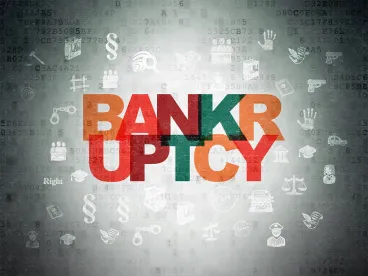In the best of times, a chapter 11 reorganization is an uncertain and stressful process for all involved. When the disruptive effects of COVID-19 are added to the mix, and many businesses face significant economic difficulties, one can begin to appreciate the daunting task facing bankruptcy courts, debtors, creditors, and their lawyers.
The pandemic has challenged many industries, but has had a particularly destructive effect on those relying on foot traffic, such as retailers and restaurants. For many, declaring bankruptcy is the only life line left, and, given the ongoing economic uncertainties, a successful chapter 11 reorganization has become all the more important. This continues to occur on the national level, with Ruby Tuesday becoming one of the latest major restaurant chains to file for chapter 11 protection in order to address the financial impact of COVID-19. Restaurants facing chapter 11 can perhaps look to the recent successful confirmation of American Blue Ribbon Holdings’ (“ABRH”) chapter 11 reorganization plan for a glimpse of how COVID-19 may have changed the process.
In Re American Blue Ribbon Holdings, LLC
ABRH is the parent company of several popular restaurant chains, including Village Inn and Bakers Square. On January 27, 2020, it filed for chapter 11 bankruptcy, shortly before the outbreak of COVID-19 in the United States. Eight months later, on September 16, 2020, the U.S. Bankruptcy Court for the District of Delaware issued its order confirming the chapter 11 reorganization plan. How did COVID-19 change the arguments and decisions made during this process, if at all?
To confirm a chapter 11 reorganization plan, a court must generally consider whether a plan is:
-
Feasible;
-
Proposed in good faith;
-
In the best interests of creditors; and
-
Fair and equitable.
Each of these principal considerations can present a difficult hurdle for a plan proponent to overcome under court and creditor scrutiny. In this case, the confirmation of the plan hinged on the feasibility of their proposed plan. As defined in the Bankruptcy Code, feasibility simply means that confirmation of the plan “is not likely to be followed by the liquidation, or the need for further financial reorganization, of the debtor” unless proposed in the plan. See 11 U.S.C. § 1129(a)(11).
Verlander Enterprises, a creditor and Village Inn franchisee, questioned the feasibility of the plan in its objections. As a franchisee, Verlander was contractually obligated to purchase pies from ABRH’s designated supplier, Legendary Pies. Verlander alleged COVID-19 had caused Legendary Pies to shut down one of its plants and make other operational changes that were negatively impacting their products and ultimately Verlander’s sales.
As originally constituted, the plan provided that ABRH would assume eleven of the existing franchise agreements with Verlander, which meant that Verlander would have had to continue its duties as a Village Inn franchisee. Verlander objected to this portion of the plan by arguing that, given the debtors’ financial state and damage to its brand, the operational changes at Legendary Pies, and the continuing uncertainty surrounding operating a successful restaurant business during a pandemic, ABRH “ha[d] not—and cannot—provide adequate assurance of future performance.” Because of these factors, Verlander argued, ABRH’s plan was likely to be followed by liquidation or the need for further financial reorganization and so was not “feasible” under the standards of 11 U.S.C. § 1129(a)(11). Predictably, ABRH forcefully objected to Verlander’s claims, arguing they were merely attempts to use the bankruptcy process to amend the franchise agreements in its favor, and the plan would not result in further liquidation or reorganization. How this argument would have been evaluated by the court remains unknown, however, because on the final day of the confirmation hearings, counsel for ABRH notified the court that a settlement had been reached that would allow Verlander to move on from being a Village Inn franchisee, thus clearing the way for one of the few major restaurant reorganizations during the COVID-19 era.
Takeaways
As more and more companies turn to chapter 11 for relief, the economic recovery will partially turn on whether businesses can effectively use a reorganization plan as an opportunity for the future. During the bankruptcy process itself, however, companies and their counsel should consider the ways the ever-present pandemic can affect traditional arguments. While ABRH was able to confirm its plan without encountering novel difficulties, its experience shows the ways COVID-19 can have a disruptive ripple effect on all the parties involved, from franchisees to manufacturers and suppliers, which may further complicate a successful chapter 11 reorganization.



 />i
/>i

